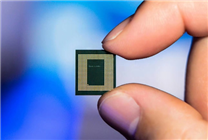Qualcomm’s Unwavering Commitment to TSMC: The Status of Intel’s Chip Manufacturing
Summary:
- Qualcomm CEO Cristiano Amon expresses doubts about Intel’s chip manufacturing capabilities for Snapdragon X.
- Despite current limitations, Qualcomm remains open to future collaboration with Intel.
- TSMC continues to be Qualcomm’s preferred manufacturing partner for now.
In a recent interview, Qualcomm CEO Cristiano Amon made significant remarks regarding Intel’s chip manufacturing technologies, highlighting ongoing concerns. Qualcomm, a leader in mobile technology, has reportedly found that Intel’s current capabilities do not align with its demands, especially concerning the Snapdragon X. Amon stated bluntly, "Intel’s chip manufacturing technology is still not meeting Qualcomm’s demand."
Present Challenges
Amon’s straightforward commentary emphasizes Qualcomm’s decision to opt for other manufacturing partners, firmly noting, "Intel is still not a Qualcomm option today." This statement underscores the challenges Intel faces in catching up with the advanced manufacturing requirements put forth by technology leaders like Qualcomm. While the immediate future looks bleak for potential partnership opportunities, Amon has left the door ajar for collaboration down the line, remarking, "We hope Intel can be an option."
This perspective reflects a cautious optimism, indicating that while Qualcomm is not ready to engage with Intel, it remains interested in future developments that could change this dynamic. However, Amon’s words also convey a sense of urgency, considering the timeline that Qualcomm operates under to deliver top-quality products to the market.
Intel’s Manufacturing Landscape
The challenges facing Intel are not isolated. Earlier this year, the company announced potential halts or even abandonment of its 14A process development if it fails to secure adequate orders or achieve key technological milestones. This has raised eyebrows regarding the execution risks and yield rates of their 18A nodes. Amon’s latest insights add further skepticism to an already uncertain forecast for Intel.
Moreover, the semiconductor industry is highly competitive, with companies constantly seeking efficiency and performance enhancements. As Qualcomm continues to innovate and develop the next generation of mobile technology, it cannot afford to align with a manufacturing partner that is struggling to meet industry standards.
Navigating Future Opportunities
Despite the current challenges, Qualcomm’s leadership remains open to evaluating Intel as a potential partner in the future. Amon pointed out, "As long as Intel can meet the demand standards, the company is willing to consider it." This strategic approach indicates Qualcomm’s flexibility and readiness to pivot should Intel demonstrate its capability to meet the rigorous requirements of high-performance chip production.
Historically, partnerships in the tech industry have evolved based on technological advancements and market needs. Qualcomm and Intel have previously discussed collaboration; however, until Intel can assure Qualcomm of its manufacturing reliability, the Snapdragon X will remain the domain of TSMC, Qualcomm’s reliable manufacturing partner.
Looking Forward
As Qualcomm navigates its manufacturing strategy, it prioritizes performance and reliability in its product offerings. The Snapdragon X is slated to be produced solely by TSMC for the foreseeable future, which affirms Qualcomm’s commitment to working with partners who can meet their stringent standards.
In conclusion, while the road ahead may appear rocky for Intel in securing a partnership with Qualcomm, the possibility of future collaboration remains. The semiconductor landscape is continually evolving, and with it the potential for companies to adapt and meet the challenges of an ever-demanding market. Qualcomm’s current decision reflects its commitment to quality and innovation, ensuring that it continues to provide cutting-edge solutions to its customers.
As the industry progresses, the actions of both Qualcomm and Intel will likely influence the broader semiconductor ecosystem, potentially reshaping future partnerships and collaborations. Thus, while Qualcomm’s focus lies with TSMC today, the future may hold new opportunities depending on how companies rise to the challenges ahead.




